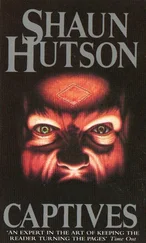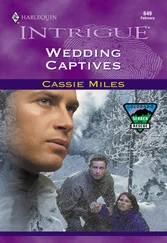Norman Manea - Captives
Здесь есть возможность читать онлайн «Norman Manea - Captives» весь текст электронной книги совершенно бесплатно (целиком полную версию без сокращений). В некоторых случаях можно слушать аудио, скачать через торрент в формате fb2 и присутствует краткое содержание. Год выпуска: 2014, Издательство: New Directions, Жанр: Современная проза, на английском языке. Описание произведения, (предисловие) а так же отзывы посетителей доступны на портале библиотеки ЛибКат.
- Название:Captives
- Автор:
- Издательство:New Directions
- Жанр:
- Год:2014
- ISBN:нет данных
- Рейтинг книги:3 / 5. Голосов: 1
-
Избранное:Добавить в избранное
- Отзывы:
-
Ваша оценка:
- 60
- 1
- 2
- 3
- 4
- 5
Captives: краткое содержание, описание и аннотация
Предлагаем к чтению аннотацию, описание, краткое содержание или предисловие (зависит от того, что написал сам автор книги «Captives»). Если вы не нашли необходимую информацию о книге — напишите в комментариях, мы постараемся отыскать её.
Captives
This is a moving account of a country shaken by communism and anti-Semitism and haunted by recent atrocities, from "a distinguished writer whose vision of totalitarianism is close to Kafka's cloudy menace, universal yet internalized" (Richard Eder,
).
Captives — читать онлайн бесплатно полную книгу (весь текст) целиком
Ниже представлен текст книги, разбитый по страницам. Система сохранения места последней прочитанной страницы, позволяет с удобством читать онлайн бесплатно книгу «Captives», без необходимости каждый раз заново искать на чём Вы остановились. Поставьте закладку, и сможете в любой момент перейти на страницу, на которой закончили чтение.
Интервал:
Закладка:
Unable to find the word, she gestured with her hand to chase away the confusion.
— You’re probably indebted to him if you’ve come this far.
— No, no, not at all. On the contrary — he always behaved badly with me. He did me a lot of harm, as he did to others.
They had gotten close, however, at one point: she had a perpetual need for advice, for someone else’s understanding, since her mother had disappeared into an asylum for the mentally ill. . yeah, the old lady had suffered a lot: she had seen her husband killed before her eyes after he had been forced to dig his own grave. Maybe Covalschi wasn’t all that bad, only deranged: after everything that had happened since that miserable night when he’d terrorized her, she believed he was sick. . he had made her fear those privileged kids, those cars that had brought them to school. . even now, when some limousine happened to stop in front of the school, even though it was rare — and, actually, many people have cars now — she’d begin to tremble the way she used to, yes, she continued having trouble managing the children, the classroom, the classes full of kids who sensed her weaknesses, who blackmailed her and put her in compromising positions. They were terrorizing her — what more could you say? — that was the word. The bags under her eyes were twitching by now. Her eyes had turned gray. Day was passing into dusk. A great, postponed terror dilated itself; she was trembling. Her voice had lost its clarity. It wheezed, deepened.
— Then why did you come here? Still, it seems that. .
— You know, we were kind of friends. I’m attached to the memories.
Little, white balls of foam had blossomed in the corners of her thin, cracked lips.
— Actually, he’s alone. Yes, that’s it. He has nobody. I’m alone too. I wanted to see someone, anyone, to leave home. . I couldn’t stand it anymore, and I think it will please him. I’m also on the way to see Mama, far away in the mountains, at the asylum.
She couldn’t add much more. People were lining up. We rose. The woman had been focused on her confessions, which was fine with me, since she hadn’t asked about the reason for my visit.
The hour approached. We had to climb a hill. There was a long, brick barracks on the peak. We couldn’t see the canal embankments that the prisoners were being forced to build; they were probably far away, and the dormitories where the prisoners would have to be brought were far away too. At noon, right after our arrival, a list had been drawn up with the names of the detainees we were trying to see, and someone had brought it up to the barracks. It was almost evening now. The women were crowding to get to the front; the convoy’s impatience had grown.
We remained in the barracks for another hour, in a state of expectation. Naturally, it would have been best to avoid being in the same series with Madam (or Miss) Professor. Her name fell at the end of the alphabet, mine at the start. The patrol called my name among the first. Hadn’t expected the names of the visited being called, and not the opposite, but Tiberiu Covalschi was in the first series of eight as well, so the professor was near me at the wire grill that separated us from the detainees. The door opened. Gray caps in hand, heads and beards shaved, they entered as they were called.
We were separated by no more than a spider’s web: it was clear that the man across from me didn’t have rich, curly hair anymore. His lenses had gotten bigger. The glass: thick, spiraled, focalized. Maybe this frightened me. He smiled. A wave of scorching heat came over me, but everything that had to be said was clear in my mind. Had all my words already prepared at the moment the signal was given to begin talking.
Opened my mouth, but to my right, someone else spoke before me — whistling through his teeth.
— You cretin. You idiotic woman.
Felt compelled to look at Covalschi, a pale, boney dwarf with twisted lips, large eyes pressed into a heavy, rickety head, hunched forward. There was a weak, livid light and no way to unglue myself from the image. That went on for a few moments till a faint came over me. .
Woke in the morning, the next day or the day after that, in a peasant’s house on a hard, clean bed. My bolster had been watched over by the lady professor with the “big heart,” the master of the house told me and “all thanks was due” to her and not himself.
Returned to the University, without accomplishing the meeting that was the reason for my trip. Therefore, my other plans went astray as well. The faint had made it impossible to leave for home, for my planned meeting with Virgil Mehedinţi.
Five months or five years later, Father visited me — reestablished, or rehabilitated as they say. He was ready to work again with all his strength. He explained to me that he had been implicated in “the Mehedinţi deviation” — by no means a matter of personal guilt. . association with an old friend who was forced out of leadership. . too highly valued, though, to be found guilty of non-existent illegalities. Vulnerable from several directions, acolytes of flimsier positions had been targeted. But it wasn’t like other calamities of the moment, he added. Some had been condemned to do hard time or had even been executed. . it’s a difficult period. It’ll pass. . we’ve been through so much, we’ll get through this too. . we’ve got to be ready to begin again, to stay alive. He hadn’t given up the grade-school rhetoric.
Had graduated, then, and was dreaming of selling tickets at a movie theater in Africa. Left for the worksite. Had little news from home. Only returned to the old town when they celebrated Donca’s coming of age. Was already working at the large new factory in the capital. My afternoons were hurried, full — they vanished, rapidly.
Declined the music professor’s invitations to chat, except once every couple of months. It was a matter of perpetually listening to her confessions: she considered me a friend, poor thing, and she went on complaining of loneliness, though she was very active and always falling into complications with new and old acquaintances — which turned into dilemmas, and she wouldn’t abandon them at any cost — and she always complained about the school, the little terrors.
For me, it was hard to find the smallest scrap of suitable advice.
• • •
Really, the light vibrated differently then. Mornings from another time. The starched shirt collar fluttered like the stiff wing of a bird. My wish was to be flying in a fairground ride in the middle of summer, up, up, high as can be, almost to the sky. The steel rods would scream and screech, hit the peak, then whir whizzing down, striking the wooden floor. Setting out on the stairs: every time the void in my stomach rose and fell.
We saw each other again in the afternoon. Then the evening wind chilled her shoulders. She trembled. The windows blew open with a sound of wooden applause. Together, in the deserted corridor, crushed under a heavy, white ceiling and the little room’s lingering sky: the same gentle nightmare for daydreaming girls. The smoke of night chased hesitations away. We were caught in a bewildered embrace of orphans, and it couldn’t last.
Everything was the same as before for a while: nothing had happened — this was proven in everyone’s cordial interactions, with neighbors from the office and apartment, with former classmates, former relatives, former professors, former wives of some former pals, with the punctual Armenian woman who would bring me her sly little smile, and with the chief engineer’s blonde woman. No one reproached my hypocrisy. The spy, Mişa, followed me without gusto; the flautist visited me between concerts. Eyes following me perpetually, the girl with rough hair and big eyes continued to smile at me. We would meet in the corridor as if nothing had happened, sometimes having time to joke, without really acknowledging each other and without forcing recognition. Several months after her peculiar departure from the factory, I noticed her absence, however. She had a kind of codified smile, a timid gait, pale hands, and — yes, it was only natural to miss her. She had left with excessive discretion, and hadn’t seemed disturbed: a colleague visited the factory where she had been transferred and confirmed that she looked well, charming as always, on the quiet side, and still young. This addition, “and still young,” sounded strange: a consolation that seemed like a reproach.
Читать дальшеИнтервал:
Закладка:
Похожие книги на «Captives»
Представляем Вашему вниманию похожие книги на «Captives» списком для выбора. Мы отобрали схожую по названию и смыслу литературу в надежде предоставить читателям больше вариантов отыскать новые, интересные, ещё непрочитанные произведения.
Обсуждение, отзывы о книге «Captives» и просто собственные мнения читателей. Оставьте ваши комментарии, напишите, что Вы думаете о произведении, его смысле или главных героях. Укажите что конкретно понравилось, а что нет, и почему Вы так считаете.












